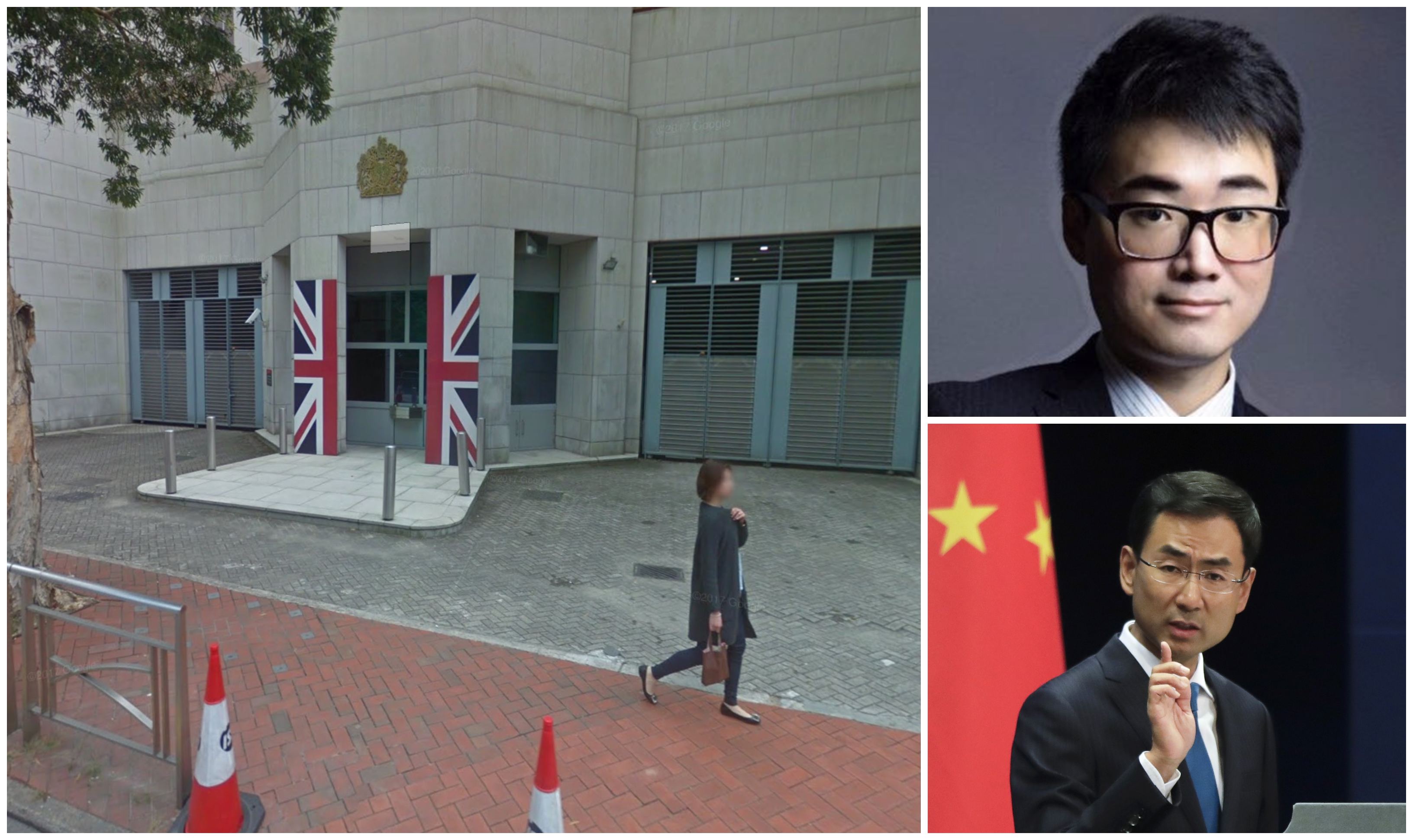The family of a staffer at the UK consulate in Hong Kong have rejected a “made-up” report by Chinese state media that he was detained in the mainland for visiting prostitutes.
Simon Cheng disappeared after visiting the city of Shenzhen for a meeting on Aug. 8, and the Foreign Office in London said both British officials and relatives have been unable to speak to him since.
The Global Times, a tabloid state-run newspaper, said he had been detained for “soliciting prostitutes,” citing police in Shenzhen, which lies on the China-Hong Kong border.
But a Facebook page run by Cheng’s family dismissed the report.
“This is a made-up crime of soliciting prostitution, everyone should see it’s a joke,” the comment said.
Beijing confirmed Wednesday an employee of the British consulate had been “placed in administrative detention for 15 days as punishment” by police in Shenzhen for breaking a public security law.
“Let me clarify, this employee is a Hong Kong citizen, he’s not a UK citizen, which is also saying he’s a Chinese person,” Chinese Foreign Ministry spokesman Geng Shuang said at the time.
The UK has recently drawn China’s ire over it’s alleged “interference” in the long-running protest movement that has rocked the city, and on Wednesday, while confirming Cheng’s detention, Geng again warned it against “fanning flames on the Hong Kong issue.”
According to the Global Times, Cheng could be detained for up to 15 days and fined up to 5,000 yuan ($700) for the alleged crime. Today is the 15th day of Cheng’s detention, though it’s unclear when or if he is expected to be released.
In an editorial on Friday, the tabloid claimed it was at Cheng’s request that police did not contact his family and that “thanks to the British foreign ministry and media, which have been hyping it, the case is now fully exposed.”
Cheng was returning via high-speed train on Aug. 8 when he sent messages to his girlfriend as he was about to go through customs.
He has not been seen or heard from since.
Netizens, meanwhile, were quick to question the Global Times‘ version of events, wondering aloud why, if Cheng were arrested for visiting a prostitute, he would be detained at customs and not at the scene of the purported crime. Beijing has faced criticism in the past for detaining foreign nationals amid ongoing diplomatic spats, and for accusing dissidents and activists of sex crimes.
Beijing has also taken pains to push its own narrative of Hong Kong’s pro-democracy protests, and the English-language Global Times has appeared more than willing to help. It has disseminated intimidating photos and videos purporting to show troop buildups on the border in Shenzhen, condemned protesters as violent rioters, and claimed in op-eds that the recent unrest bears the hallmarks of a so-called “color revolution.”
Cheng’s family said it had hired a lawyer in Shenzhen who had been unable to find or speak to the detained consulate employee.
Police in Shenzhen did not reply to AFP’s request for comment.
A spokesperson for the British Foreign Office said in a statement Thursday that it was continuing “to urgently seek further information about Simon’s case.”
China promised to respect Hong Kong’s unique freedoms for 50 years after its handover from Britain in 1997 — including freedom of speech, unfettered access to the internet, and an independent judiciary — but protesters say these rights are being eroded and are demanding, among other things, the right to elect their leaders and the complete withdrawal of a bill that would allow extraditions to the mainland.
Chinese authorities have increased their inspections at the border since the protests, including checking the phones and devices of some passengers for photos of the demonstrations.





Reader Interactions